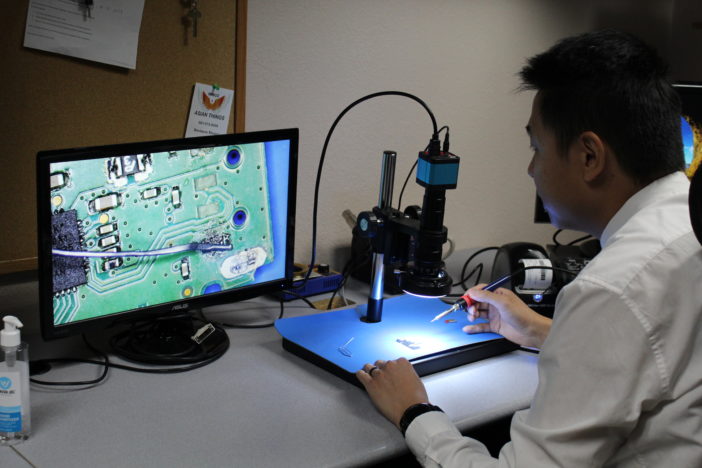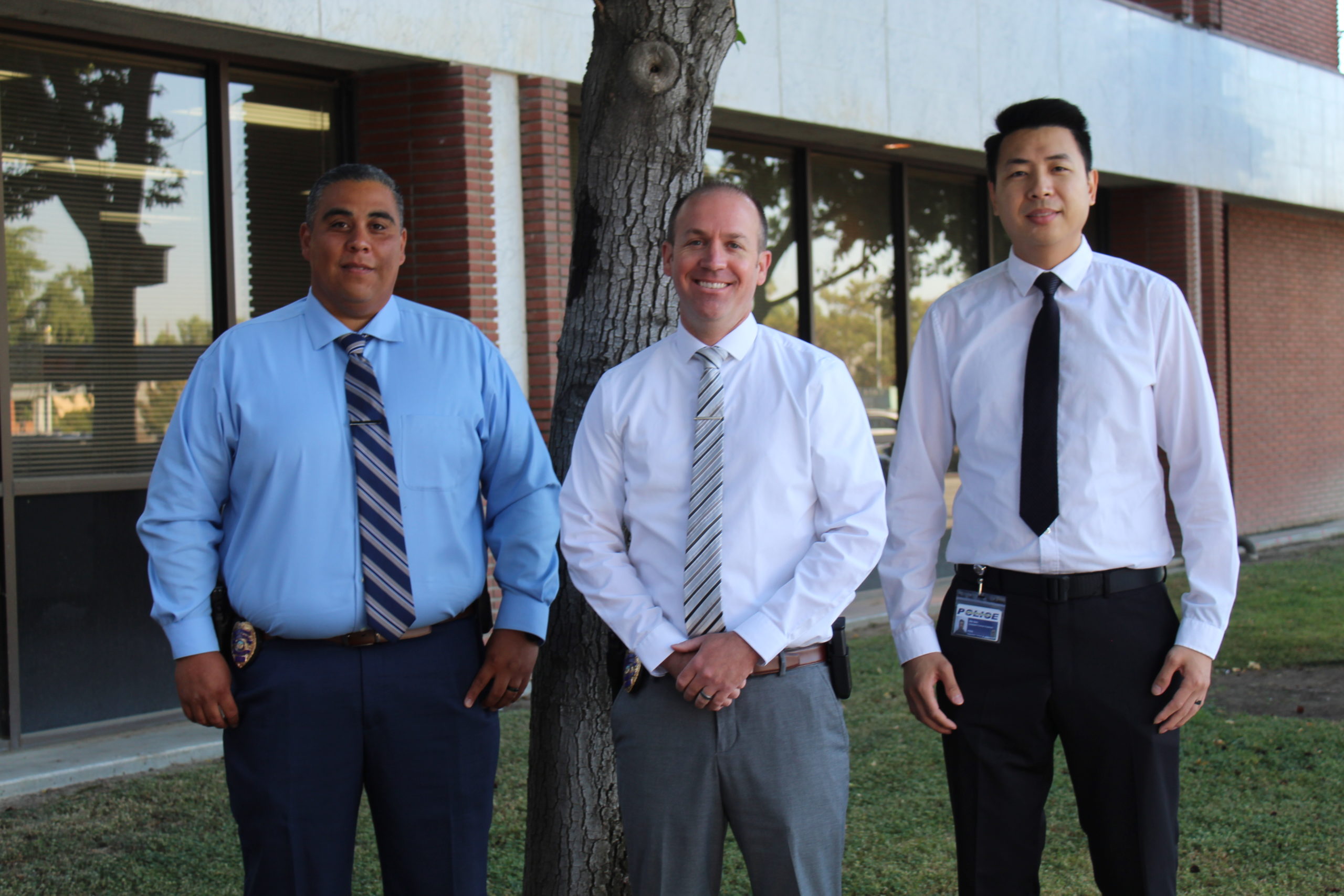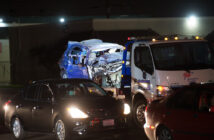For the Digital Forensics Unit at Bakersfield Police Department, a cell phone isn’t just a device to call friends, order take-out and play Candy Crush.
It’s a digital footprint that often shows, where people have been, who they’ve text and what they’ve been researching on the internet.
Sometimes, if they’re really lucky, the Digital Forensics team will find photos of the crimes they are investigating – which is always a nice ace in the hole.
“We don’t know why, but criminals love to take pictures of the things they are doing,” said Senior Police Officer Alex Patino, who conducts digital forensic examinations with BPD. “We’ve found photos that show the products they are producing, selfies with narcotics or with currency. It’s pretty common.”
The small but mighty Bakersfield PD unit consists of Police Digital Forensics Examiner Windell Zheng, Senior Police Officer Alex Patino, and Sergeant Daniel McClive. The unit is made up of sworn officers as well as professional staff who follow the electronic breadcrumbs to help solve high profile cases.
Officer Alex Patino made the move to the forensics unit when he realized he could merge his passion for police work with his interest in computers and technology.
“I had been working on a case (as a police officer) where we were investigating school threats and it was very interesting to see how the use of technology could assist in identifying the suspect. I was really impressed to see how Digital Forensics was able to further the investigation.” he said. “When I saw an opening on the team, I requested to make the move.”
Bakersfield Police Department’s Digital Forensics Unit processes and analyzes computers, cell phones, vehicle infotainment systems, surveillance systems, and external storage devices. Their staff is trained on how to read stored data, and to spot the sabotage of data and unlawful access into data systems.
The team is trained on multiple software systems that help them obtain data in a sound manner that can be used in court.
“Most large Departments have a Digital Forensics Unit now, especially because there’s so much digital evidence,” said Sgt. McClive. “This isn’t a new field, it has been around for decades, but now there are so many different kinds of digital devices, you have to be trained with the software we use so you know what to look for when working on a case.”
The more common digital devices the team work on include vehicle navigation, the car radio, and the car itself, which is also digitally run. The digital forensics unit processes the infotainments system found in many modern cars. These systems are capable of storing navigation destinations, calls logs, text messages and voice commands.
But the most common digital device forensic examiners work with is the portable and smart cell phone, which often carry all the clues they need.
“Everyone carries a smart phone in their possession, and they can do a lot of things too… texting, chatting apps, use them for location, videos, photographs,” said McClive. “It’s incredible how much we all interact with our phones each and every day, and we can look through everything and find digital clues, read stored data and understand it.”
Windell Zheng, who has a background in digital forensics, but isn’t a police officer enjoys the challenge of taking his computer skills and using them at a police department. He gets to see his skills make a difference through solving cases and being able to help law enforcement.
“In forensics there is a different way to look at data,” Zheng explains. “There’s a digital language that one must understand in order to make a program happen. That’s what we do. We help translate it.”
For more information on a career in Digital Forensics, please go to http://www.bakersfieldcity.us
 Behind the Badge
Behind the Badge




